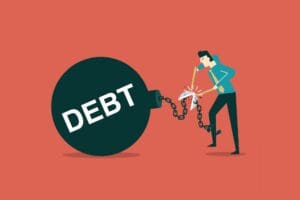
Three in four families in Australia faced debt in 2020, a statistic that continues to rise by 7.2 per cent according to the Australian Bureau of Statistics. Such debt can be accumulated in many forms and may present itself as a home mortgage, a university HECS debt, credit card debt or repayments made for a car.
It is a common question whether debt ‘dies with you’ or whether debt can be passed on to a loved one. When a person passes away, their ‘executor’ is responsible for their assets. Should this person have a Will, their executor will be nominated by them. It is this executor that will be responsible for repaying any debts owed by the deceased with their assets. Once all debts have been paid by the executor, they may then distribute the remaining assets to your beneficiaries (that is, people nominated in your Will to receive the benefit of your assets).
If the value of the deceased’s assets is not enough to pay the debts, the executor may proceed to sell any properties or assets to pay the debts using the sale proceeds.
When Can Others be Responsible for your Debt?
Another person may be liable for a debt if the debt is secured against an asset that is owned by that other person. This means that debt is supported or ‘secured’ by collateral or security, such as a property or other assets.
Secondly, if more than one person is named on the debt, then all persons named are responsible for the debt, even if one person passes away. If one account holder dies, their estate may be used to pay off part of the debt or the joint account holder will be responsible for the whole debt.
If you or someone you know wish to discuss this issue further, then please do not hesitate to contact us on 02 8999 9809
